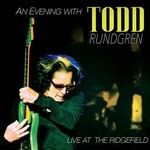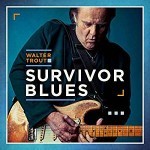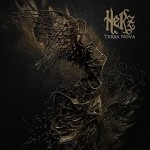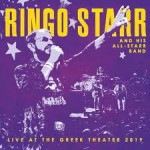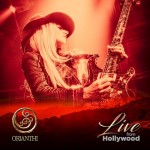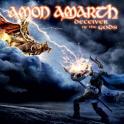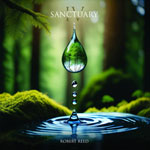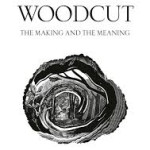Interview with TED LUNDSTROM (Amon Amarth) – 17 November 2013
Share the post "Interview with TED LUNDSTROM (Amon Amarth) – 17 November 2013"
The Forum is a large London-based venue, a place that many bands dream of selling out but something which only a handful are capable of achieving. This old theatre has been the home of the Swedish Melodic Death Metal band Amon Amarth for many years now and it was in the backstage area of said establishment that I met bassist Ted Lundström for a short but thoroughly enjoyable interview.
Looking clearly excited about the prospect of performing another sold out headlining gig in the UK, the softly spoken musician spoke with affection about the band’s latest brainchild “Deceiver Of The Gods”, the band’s upcoming US tour and also indulged with me with a discussion of a purely cultural/anthropological nature.
By Yiannis (John) Stefanis.
- Ted, thank you very much for taking the time to do this interview with us. It’s very nice to have Amon Amarth back on UK soil in support of another good quality release. This is one of the many tours you are currently undertaking in order to promote “Deceiver Of The Gods” and so I am sure that, by this stage, you have performed material from the album enough times to be able to evaluate how well it comes across in a live environment. Are you pleased with the way these songs come across to your fans when performed on stage?
Ted: Actually, yes. We haven’t tried all of the songs yet, to be honest, but we have played most of them live and they are working really well – especially the ones released first, such as “Deceived Of The Gods”. This is a great song to perform live as people tend to sing along to the main melody in a way that’s similar to songs written by bands like Iron Maiden.
So far on this tour we’ve been trying stuff, swapping a couple of songs each night in order to see which ones work best. We did Mayhem Festival in the US but, at this stage, the album was not out yet so we only performed one song there. Now that we are doing a European tour we are working on finding which songs work best in a live setting. So far, everything that we play live from the new album has been received very well by the audience.
- Creating a set list has been gradually become a bit of a mission for you guys as you have released a fair few albums and good quality compositions by now.
Ted: That is indeed a big problem because you want to squeeze into the set as many songs as you possibly can in order to please the fans of the old material as well as those of the new while, at the same time, you are trying to promote your new album.
It’s really tough, that’s why we are changing our set list a little bit each time – in order to find what works best. Some songs work really well in England while others work better in Germany, for instance.
You never know, and it doesn’t matter how long your set will be as there are always going to be some fans who will feel disappointed for not getting to listen to their favourite song. It takes a while to create a set list because it needs to have a good flow and a mixture of different styles of music – its hard work but a nice problem to have (laughs).
- Reading through some comments made by members of the band prior to the release of “Deceiver Of The Gods”, Johan (note: Hegg/vocals) was especially vocal over the fact that this album was more of a cumulative effort, following an instinctive creative process rather than a meticulously organised one. From a personal point of view, that of the bass player in the band, did you find the experience of recording the album to be more liberating and open than previously?
Ted: Well, once you’re in the studio and you start recording, everything is more or less already done. Back in the day we would write a riff and we would be too worried whether something “sounds too much like this and that” and we would be very picky as per what could be added or not. In the end it is only us who get to worry about these things so we decided, in this case, to let everything in and do exactly what we wanted.
The same thing happens in the studio. The last couple of years we had to record everything in small pieces as everything had to sound perfect with the new digital recording systems so we decided to work differently this time round. Of course you want things to sound perfect, but we took longer takes of everything so as to infuse the album with an old-school feel as back in the old days you had to play a whole song in one take.
We tried to give that feel to “Deceiver Of The Gods” and it was quite fun recording it as we went to a new studio and we worked with Andy Sneap who is an amazing producer and a much talented really cool guy. It was fun – I really enjoyed recording this album.
- You are one of those bands who have managed to establish their own trademark sound and style which is really the key to success. Do you feel that the Amon Amarth’s style of music is restrictive to you as an artist in any way or do you see that there’s still scope for expansion within that style? Can you record something fresh without jeopardising the Amon Amarth identity of the music on offer?
Ted: I am not worried about losing the Amon Amarth sound because it’s nothing specific that we do in order to create that sound in the first place. Whatever it is that we do ends up sounding like this – it’s a natural process. Sometimes we do…I remember when we wrote “Father Of The Wolf” we were like “this is so much old-school Heavy Metal and it will not end up sounding like us at all” but still, once the whole production process was finished and the vocals were added, what we found out was that it did sound like us after all. I believe that we can try to do anything we want and you will still be able to detect that it is our product.
- Based on the information and the feedback provided by the label after “Deceiver Of The Gods” was released, did you get any seriously negative reviews: people who claim that this album does not belong in the band’s musical arsenal, or was this a universally accepted release?
Ted: No, not at all. Everybody seems to be quite pleased with our new material. We have been fortunate enough to have a record label (note: Metal Blade) that would never push us in any direction. They trust us and thy let us do whatever it is that we want to do. They would never say things like “This is not good enough” or “You should do this, you should do that” in order to please others. We never had that problem.
- You are currently on tour with Carcass and Hell, two of the bands that are opening for you tonight. How do you enjoy the experience of playing with them? Obviously your recent experience working with Andy Sneap has already guaranteed a nice chemistry with the members of Hell and all.
Ted: These are bands whose music we have been listening to for a long time and feature in their ranks people that we know from before this tour was put together so things are pretty relaxed and laid back. There are no problems whatsoever – everything rolls over like a well-oiled machine. We are really happy with the line up for this tour; it’s been great so far and hopefully things will become more enjoyable as the days go by.
- Have you experienced any informal and polite forms of competition between the bands – like Carcass trying to steal your fans and vice versa?
Ted: Well… (laughs) not really but, of course, that is the whole point with putting together packages like this one – to convert fans that are loyal to the other bands. That’s the ultimate goal. We do have a very interesting mix of bands on this tour: this theatrical Heavy Metal thing with Hell, the classic Death Metal thing with Carcass and then us performing our own stuff that’s a bit more melodic.
Also tonight you will see on stage Bleed From Within who perform more modern stuff so we’ve got a little bit of everything here for you. Hopefully we will be able to steal some fans from all those bands as I am sure they are looking forward to stealing some of ours in the process.
- After the end of this European tour you are scheduled to go back to the States in whose market you have invested a lot these last few years. In my experience, America is a different ball game, as far as promoting an album and record sales are concerned. What would you say are the biggest challenges that a band like Amon Amarth has to face over there?
Ted: The Metal fans that we managed to win over in America are pretty much the same like those you find in Europe but the US in general is a bit more superficial as, sometimes, image is the most important thing.
I don’t think that we really had any problems with that as we always did our thing and our record labels in the US always took care of everything that needs to be done for us. All we can do is to write music and tour as much as we can – whether that works or not is, in a sense, out of our hands. It doesn’t really matter anyway as we are not going to change in order to fit into the US market anyway. They should either accept us as we are or not.
- The whole Viking Metal theme has been quite popular on the New Continent these last few years so by indulging as deeply as you do in that concept you have, in a sense, one foot in the door already. Every band that has ever aimed at becoming big in the States always mentions how the key lies in relentless touring, but when the country is as vast as the US, it must be difficult to make the sacrifices and the effort demanded. How do you cope with that?
Ted: Well, it is what it is and really there isn’t such a massive difference between touring there and touring in Europe where you sometimes find yourself criss-crossing the continent in order to play as many venues as you possibly can. It’s just…it’s pretty much the same: you play a show, you get on the bus, you sleep and when you wake up you are in a totally different place.
This is what we do – we make an album, we tour for two years and then we start working on a new album so for me it doesn’t really matter how we do it. If we go to South America to fly between shows it is sometimes even harder because you have to spend so much time at airports being early enough to check in all your equipment and go through security. Then the whole flying thing and, in some places, the customs and immigration procedures are quite time consuming. Touring is usually a long pain in the ass no matter where you go, but once you’re on stage you forget all about that because this is what you live for.
- From my knowledge, Scandinavians truly cherish their personal space. How do you cope on a crowded tour bus for such a long time? What do you do to keep yourself sane?
Ted: Well, for us things are not too tricky because we are an easy going band. There is no tension between the members which is something that many other bands get to experience, especially when they have been through various member changes.
We, on the other hand, have had the same line up for a long time and so we know each other very well. When we are on tour spending time in the same confined space is not a massive problem for us – the travelling and all that sh*t, all the boring stuff that comes along with touring…well, it is what it is and it’s still much better than waking up and having to go to a boring 9-5 job at home – it beats that every day of the week anyway. Sometimes you forget that but then you have to tell that to yourself when you’re on tour. It is when you start to think that everything sucks that you have to remind yourself that this is a much better job than the one you did before and that makes things much easier.
- Ted, when “Fate Of Norns” came out, almost a decade ago, I remember thinking to myself “I hope that the music industry does not treat Amon Amarth as a gimmick, a passing trend”. Now, you guys have managed to stay true to your concept and, in the process, establish yourselves as a top act – something that’s very impressive indeed. What would you say was the important factor which led to this result?
Ted: Well, we always try to stay true to what we do regardless of trends. When this ‘Pagan wave’ arrived a couple of years back we made a conscious effort to stay a little bit outside that rather than jumping onto the band wagon in order to grab a few new fans in the process. The important thing is to do your stuff 100% and not really care what’s going on around it. Our Viking image has been very important for the band but, for us, the main focus has always been the music itself. I have no secret recipe to give away to you with regards our longevity but things have been really working for us.
- A case of plenty of hard work and some luck, I guess!
Ted: Yeah, for sure.
- When you visit countries whose cultural background is so much different from yours, places with a strong individual history like Greece for instance, and you see fans there sporting Thor’s hammer and tattoos with runes do you not find it quite strange? What are your thoughts on this?
Ted: In the beginning it was king of weird as you would ended up seeing such things everywhere you went but I do believe that it is a cool thing and not that strange if you think of it. Other people’s stories and tales are always interesting to you. I find stories about Ancient Egypt to be absolutely fascinating and the same applies to stories from Ancient Greece.
In Asia you also have many interesting civilizations to draw such stories from and it is always fun to take in something new that you normally cannot find in your own culture. The more you learn something new the more you want to read about it. We meet a lot of new people every time we go on tour and they are normally like “I never knew about this story before and, since I listened to your song, I have read everything I could find in relation to it” which I think is cool – having people searching for things to read in relation to northern mythology. It’s cool and these are great stories for us to use and refer to in our lyrics and album concepts in general.
- As both a historian and a Greek person, I believe in what many people refer to as ‘universal truths’. If you read Greek, Egyptian, Roman, Celtic and Scandinavian mythologies you will find that they all promote similar values through their stories. Perhaps it is the need for people to believe in these ‘truths’ which can unite people around the globe under a concept like that used by Amon Amarth.
Ted: Exactly! Sometimes, especially when we play in the southern parts of the US and in areas inhabited by Indian tribes, we do find that there is a strong connection between us and these people as their religion and culture is nature-based – exactly as ours was before Christianity was introduced. Things work over there in the US the same way as they do in Europe in that respect; there is a form of connection as a result of similarities between our past cultures.
- Ted, the sky is the limit when it comes to successfully promoting the band and you are doing really well at the moment. Being a fan of the band, I really hope that this continues to be the case for the years to come. Do you guys have anything remotely similar to a ‘five year plan’ that you try to adhere to?
Ted: Basically we always take things one step at the time and try not to look to far ahead. People often ask us in interviews things like “When you first formed the band did you ever dream of reaching this far” to which the answer is “No”. You set one goal at a time and when you reach it you know that it is time to set the next one. The first goal was getting a record deal, which we of course did, and since then we aim at one goal at a time. It is a case of ‘one step and the time and see where that gets us’. Of course, there is a limit as to how far you can go as a Death Metal band but I do believe that there is still room to grow.
- Ted, I really hope that you achieve all the goals you set yourselves in the future as you are have been both entertaining and considering towards us fans. I really hope that you enjoy tonight’s show and I wish you every success with regards the upcoming US tour.
Ted: Thank you very much.
Gig review (17 November 2013)
Featured Artist: JOSH TAERK
Since early 2020 Josh has been entertaining us with exclusive monthly live sessions,
Check out videos here: https://www.facebook.com/getreadytorockradio
Upcoming sessions:
February 15
March 8
April 12

David Randall presents a weekly show on Get Ready to ROCK! Radio, Sundays at 22:00 GMT, repeated on Mondays and Fridays), when he invites listeners to ‘Assume The Position’. The show signposts forthcoming gigs and tours and latest additions at getreadytorock.com. This “Best of 2025 reviewer choices” show was first broadcast on 21 December 2025.
UK Blues Broadcaster of the Year (2020 and 2021 Finalist) Pete Feenstra presents his weekly Rock & Blues Show on Tuesday at 19:00 GMT as part of a five hour blues rock marathon “Tuesday is Bluesday at GRTR!”. The show is repeated on Wednesdays at 22:00, Fridays at 20:00). Pete’s Best of 2025 was first broadcast on 23 December 2025
How to Listen Live?
Click the programming image at the top of the page (top right of page if using desktop)
Get Ready to ROCK! Radio is also in iTunes under Internet Radio/Classic Rock
Listen in via the Tunein app and search for “Get Ready to ROCK!” and save as favourite.
More information and links at our radio website where you can listen live or listen again to shows via the presenter pages: getreadytorockradio.com
Power Plays w/c 26 January 2026
JOANNE SHAW TAYLOR Hell Or High Water (Journeyman Records)
TY FREEMAN One Way Love (indie)
GREY DAZE Monster You Adore (indie)
HOKKA Death By Cupids Arrow (Nuclear Blast Records)
PURPLE DOTS Stared At The Sun (Kycker)
SAINT AGNES Song For Mia (Spinefarm)
STREETLIGHT Shake That Feeling (Frontiers)
Featured Albums w/c 26 January 2026
09:00-12:00 The Best of 2003 – 2025 (Melodic Rock)
12:00-13:00 The Best of 2003 – 2025 (Melodic Hard Rock)
14:00-16:00 The Best of 2003 – 2025 (Singer Songwriter)
Our occasional Newsletter signposts latest additions to the website(s). We also include a selection of recent top albums, based on GRTR! reviewer ratings. The newsletter is sent out a few times a year.
If you’d like to register to receive this occasional mailing please complete the form:
If using a smartphone/tablet please tap here or re-orientate your device
(Note that this registration is separate from site registration which allows you to leave comments and receive daily emails about new content. If you wish to register for this – in addition or separately – please click or tap here – for more information – the form is at the foot of each page. Please read our privacy policy when opting-in to receive emails.
Recent (last 30 days)
Share the post "Interview with TED LUNDSTROM (Amon Amarth) – 17 November 2013"

















